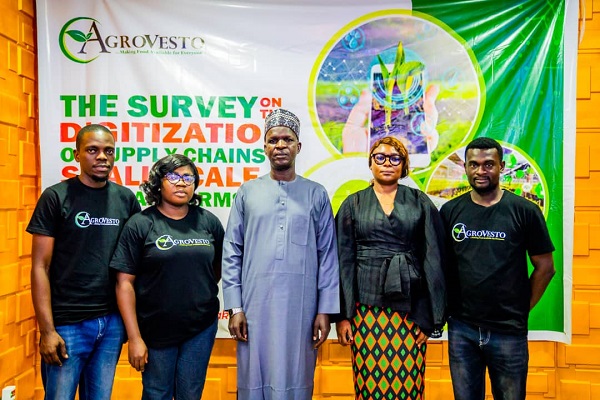
The director-general of the National Information Technology Development Agency (NITDA), Mallam Kashifu Abdullahi highlighted the potential for advanced technologies like artificial intelligence (AI), the Internet of Things (IoT) and blockchain to address challenges faced by Nigeria’s farmers during a keynote speech in Abuja.
He emphasised the transformative impact of these technologies on agricultural practices and food security.
At the launch of the Survey on the Digitisation of Supply-Chain in Small-scale Nigerian Farms Project, Abdullahi, represented by the agency’s director of digital economy department, Engr. Salisu Kaka discussed the project’s goal to enable smallholder farmers in Nigeria to thrive, increase their income, and expand their market opportunities, thereby creating wealth and prosperity through agriculture.
Abdullahi also emphasised the importance of digitising the supply chain for small-scale farms, particularly in addressing challenges such as limited access to technology, high production costs, limited financing, post-harvest losses, poor market access, and labour shortages. Digitisation, he noted, offers a transformative solution to these challenges and can help small-scale farmers meet consumer demands, enhance food quality and safety and promote sustainable practices.
He pointed out how technologies like AI, IoT, and blockchain can play crucial roles in optimizing supply chains and improving productivity and economic potential for small-scale farmers. Abdullahi also highlighted NITDA’s support for Nigeria’s agricultural sector, including initiatives like the National Adopted Village for Smart Agriculture (NAVSA) and the Strategic Roadmap and Action Plan, 2024 – 2027 (SRAP 2.0), which focus on promoting technology in agriculture to boost food security and the sector’s GDP contribution.
Abdullahi also referenced a successful case in Kenya, where digitisation efforts led to substantial increases in farmers’ incomes. Additionally, co-founder/CEO of AGROVESTO, Bayo Adewoye discussed the project’s goals to improve farmer income, enhance supply chains and empower farmers with digital skills to expand their market reach.
The next steps outlined include the rollout of digitisation for market access, the design and integration of a digital platform for market access, and the onboarding of cooperatives and SHEP graduates to the platform, followed by monitoring and evaluation activities.


